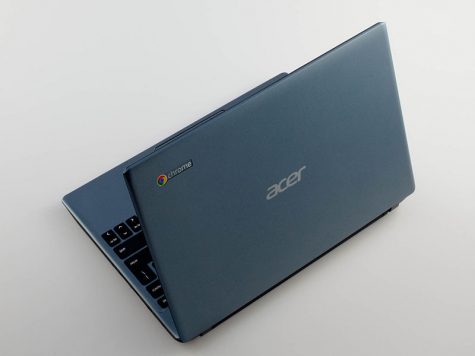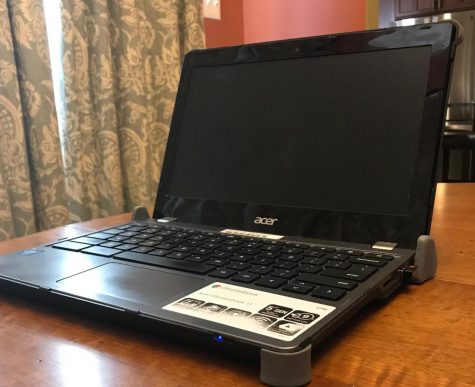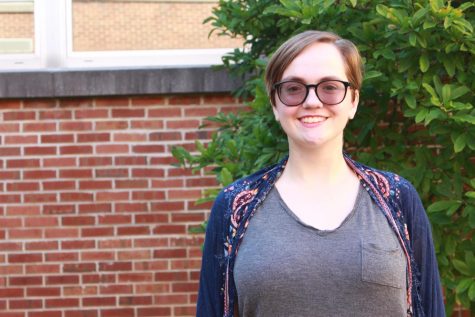Replacements Tested for Chromebooks
October 15, 2018
Throughout the year, select students will test a variety of new computers to replace the Chromebooks from the past four years.
About three weeks ago, approximately 30 total tech shed, student council and Warrior council members were sent emails telling them to pick up their new Chromebooks in the library classroom.
The trials are meant to function similarly to the test done prior to when the original computers were issued one-to-one across the school.
There are three different computer brands being tested: a Dell, an Acer and a CTI.
Overall, these trial computers are faster and more advanced than the Chromebooks currently implemented.
Junior Annie Hebel is currently using another Acer model for the trials.

Image By Alvin Trusty [CC BY-SA 3.0 (https://creativecommons.org/licenses/by-sa/3.0)], from Wikimedia Commons
“They’re pretty much the same thing but better,” said Hebel. “They’re faster, they’re flippy, which is fun. They have a touchscreen, which I find the touchscreen really really helpful for a lot of things.”
The heightened capabilities give students more ways to interact with the technology.
“I’ve heard from some people who don’t use them at all, but I use them a lot. It’s really nice. I like to turn my Chromebook into a little bit of an e-reader because you can access Kindle books,” Hebel said.
Some of the models, like the CTI senior Juliana Wagner was given, even have touchscreen capabilities.
“The touch screen is pretty good, but sometimes it gets a little annoying when you accidentally like tap on it and stuff,” said Wagner.
After growing accustomed to the current Chromebooks, it takes time to adjust to another computer, but the students are excited.
“Because it’s like new, it’s like motivating me to do my work, if anything,” Wagner said. “It’s kind of fun to work on a new, up to date Chromebook.”
Students are also interested in the new software capabilities of the trial computers.
“I think that there will be a lot more that you can do for productivity with in terms of editing software … like editing for photography and videos, and even annotating PDFs. There’s a ton of stuff out there that we haven’t even explored yet,” said Hebel.
Durability issues have been the main reason new computers are needed, though.
Librarian Kayse Corrieri, who frequently works alongside students and Chromebooks, spoke about the issue.
“We’ve really had a lot of trouble with breakage, and as the Chromebooks get to year three and four, we’re seeing that they just are not holding up,” said Corrieri.
When the school started using Chromebooks, they were expected to last longer than the technology was designed to handle, especially given how teens handle technology.
“Because obviously kids are hard on machines; it’s not like an adult who just sits with it at a desk,” said Corrieri.
The need for computers has not gone down; however, the combination of more breakage and more students means that there are not enough Chromebooks for every student to have one.
Students can feel the more sturdy build of the test computers and agree that it will help solve the problem once executed.

“A lot of the Chromebooks break at the hinges,” said Wagner, “but since these hinges are designed to fold and flip, I think that that would resolve a big problem.”
Throughout the rest of the school year, the students in the trials will continue to use these computers in a cycle.
“They’re going to keep using what they have for two months. Then they shift to a new machine for two months, and shift to another for a couple months,” said Corrieri.
The goal is to have students try all of the models so that they can formulate an informed decision on what computer was their favorite.
During this time, those involved in the trials have a shared Google Doc to write down anything pertaining to their experiences with the technology.
All of the compiled data will help school officials decide on a final model to integrate into a single grade next year or if the added capabilities are worth it.




